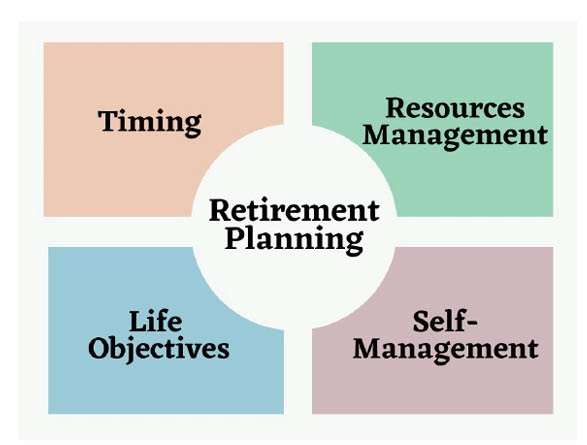Retirement from jobs and careers a person has had for three to four decades comes, understandably, with mixed emotions. These emotions are triggered by several possible factors depending on individual retiree and their situations and circumstances. Today, we want to look at some of those triggers.
As mentioned in the past, the pathway into retirement seems to have some bearing on our feelings and dispositions towards it. The response may, at least partially, depend on whether the individual retired voluntarily, mandatorily, or compulsorily. Response differences will also depend on how individuals process what is happening to them. Nonetheless, regardless of the pathway and individuality, most about-to-retire and retirees feel some anxiety about retirement for many reasons such as:
Concerns about the state of finances: Finances play a major role in what we can do in life. We need funds during our working lives and later in retirement for similar and dissimilar purposes. Thankfully, we get our full salaries and benefits whilst at work. Furthermore, in our environment, the work we do could also open doorways for other legitimate opportunities, subject to the terms of our employment or business. As a result of this, many of us live big lives during our working careers that bear only little synchrony with our actual salaries and benefits.
But retirement might mean access to fewer funds in pension entitlements and a lack of other inflows from the legitimate opportunities we had at work. This means the lifestyle created by the retiring individuals for themselves and their families during their period of employment might not be realistically sustainable after retirement except if an individual has sufficiently prepared for that. Furthermore, some retiring persons may still have young and/or adult children who are dependent on them. In addition, some of us may be culturally bound to take care of our elderly parents who may still be alive. The young children might need education funding, while the aged parents might need medical attention. Thoughts about finances, except for some, could, therefore, generally cause anxiety about retirement.
- Daily Trust, Trust TV, reporter win WAMBA Political Reporting Award
- Day-old baby dumped on Jigawa farm
Changes in identity: A beloved uncle of mine was a Manager at UAC when he was young and most of his nephews and nieces were not even born. After UAC, he went on to do other things. However, his career at UAC had created a lasting identity for him. My uncle has since departed this world, but we still refer to him as ‘Bappa Manager’ (meaning, ‘Uncle, the Manager’!)
Our jobs and businesses contribute significantly to the two components of our identity: How we see ourselves, which is our personal identity and how others see us, which is our social identity. In addition, we tend to be treated by most people based on what we do and who we are. Depending on several things, parts of each of these identity components can be stable and others dynamic. Retirement can easily alter, sometimes even traumatise the structure of our personal and social identities. A consequence of identity perturbation could be a change in our social status when we retire. Similarly, relationships with former colleagues and associates and with our families, friends, acquaintances, and members of our local communities could change after retirement. You have probably read one of our former presidents talked about how some of the people who were always with him when he was the president don’t take his calls anymore.
In addition, our work and businesses give us purpose, meaning and prestige that we value. Our work and work associations make it possible for us to create our personal ‘community bubbles’ in remarkable and deep ways. Hence, unwanted or mishandled changes in a long-established identity and status we have gotten accustomed to could cause anxiety about retirement.
Loss of structure: Our work and businesses give our lives structure and routine. We know what we need to do every morning, day, and evening. We have timings for when to wake up, leave our homes and get to work. We know which route to take to the office and what we will be doing at work from 8 a.m. to 5 p.m.
At our workplaces, we engage with others to attend to various corporate issues. We socialise with colleagues and meet other associates who have business with our organisations. Except for those working in toxic and difficult environments, these activities give us a desired structure and routine, both of which help not just with the paycheck but with hope, discipline and order in life.
Depending on our individual makeup and situations, retirement could create voids that will need conscious filling up. These voids, unless understood and filled appropriately, may lead to unhealthy self-pity and emotional loneliness in a new context when we need to be upbeat with positive engagements for our well-being. Perhaps due to individualities, possible differences in risk affinities, official responsibilities and privileges, retirees from the public sector tend to be impacted the most by the loss of support provided by organisational structures more than those from the private sector. Nonetheless, irrespective of who we are, what we do and where we may be retiring from, we will need to understand and manage any loss of support we had hitherto gotten from our former organisations.
Next week, we will take up a few more of the factors that can trigger varied emotions about retirement.

 Join Daily Trust WhatsApp Community For Quick Access To News and Happenings Around You.
Join Daily Trust WhatsApp Community For Quick Access To News and Happenings Around You.

